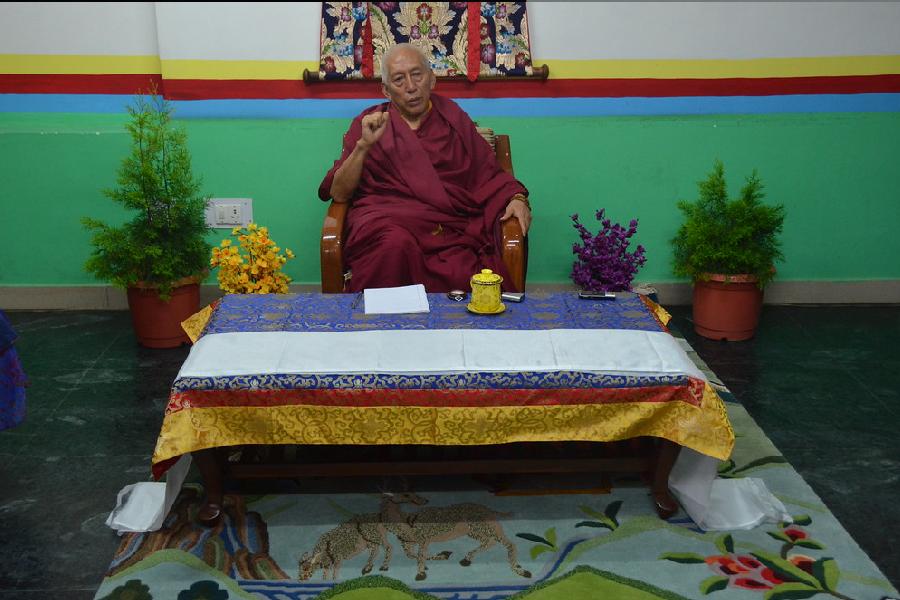Samdhong Rinpoche, the head of a trust that will oversee the task of selecting the next Dalai Lama, will be in Calcutta on Saturday to take part in a seminar on Tibet’s past, present and future and its impact on India.
The Tibetan Buddhist monk and politician, who also served as the Prime Minister of the Tibetan government-in-exile based in Dharamshala, will be the keynote speaker at the programme. The seminar will be organised by the Calcutta-based organisation Ganasamannay and the department of South and Southeast Asian Studies, University of Calcutta. The monk is an advocate of Gandhian philosophy and a sought-after speaker on peace across the globe.
“The main objective of the seminar is to create public opinion in favour of the people of Tibet.... That’s why we are getting Professor Rimpoche so that the audience in Calcutta gets to benefit from his views,” said Ruby Mukherjee of Ganasamannay.
“The world knows that Tibet is not a part of Communist China.... But because of prolonged silence over it, people tend to forget the fact. We want to make people aware of the reality,” Mukherjee said.
Because of its strategic location — often referred to as the buffer between India and China — Tibet has immense strategic importance for India. Tibet, which is rich in mineral resources and the source of some key rivers flowing to India, holds importance for a host of ecological reasons.
“The problem is China is exploiting these mineral resources by carrying out indiscriminate mining.... They are even dumping nuclear waste in Tibet. They are also building dams on rivers like the Brahmaputra. We want people to be aware of these facts,” said Mukherjee.










